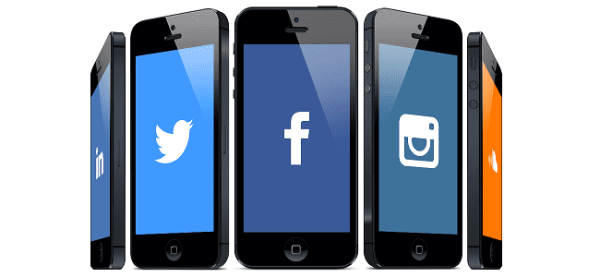How Much Does Your Social Strategy Depend on Facebook? (And Will You Regret It Later?)

In the ten years since its launch, social media giant Facebook has morphed from an online college directory into an inescapable, worldwide presence. In that time, it’s also changed how businesses, including automotive dealerships, interact with their customers with the Facebook for Business tool—just one of many features that have helped to expand their enterprise. However, like many online fads, there is always a peak and a decline, and some in the industry are noticing that Facebook is no longer the behemoth of social media.
The Rise of Specialization
Forbes has broken down the current state of the industry into “specialties,” to reflect the rise of distinctive photo sharing apps, review sites, news sites, micro-blogs, and geolocation check-ins. Forbes believes that the trend of these specialized sites will continue, and along with it will come Facebook’s loss of members.
As ubiquitous as it is, Facebook is now poised to become merely another app in a sea of growing social mobile engagement products – many of which meet user demand for privacy and deliver an experience unfettered by ads. A recent Pew Research Center study highlighted how nearly half of current surveyed Facebook users said they’d previously considered quitting the site, and another 61 percent say they’ve taken several weeks or longer away from Facebook.
A Fragmented Channel
The truth behind this is measured by two things: a recent turn towards users’ desire for more privacy, and the rise of mobile. Chris Hoffman from MakeUseOf believes that people “are moving away from social networks like Facebook that are linked to their real identity and towards other networks where they use pseudonyms that aren’t their real names and avatars that aren’t their real faces.” And with Facebook’s recent embarrassments around selling customer information and behind-the-scenes testing on users without their consent, concern over privacy on the social media website is at an all-time high.
Potentially due to this lack of confidence, Jason Mander, head of trends at GlobalWebIndex, has seen increased usage on other social networks, listing the rationale that users find these apps “simple, largely ad-free and are seen as being much more private.”
Automotive retailers should take their cue from another highly customer service-focused industry – social media’s “fracturing” may be most apparent in the restaurant industry, where the Restaurant Social Media Index measures social media dining activity. In the second quarter of 2013, RSMI noticed Facebook’s lagging performance among the 52 million tracked restaurant customers, with upticks in apps such as Vine, Google+ and YouTube. This is due in part to the rise of mobile engagement, which has increased 300 percent in the past year – and almost 39 percent of RSMI diners’ activity occurred on a mobile device.
Focusing solely on Facebook may jeopardize your ability to connect with customers both now and down the road – especially among teenagers, where 95% of them are online and 9 out of 10 use social media. These individuals may not be your customers just yet, but establishing brand presence and awareness can generate engagement now and sales for your dealership later, plus review sites like Yelp! have the ability to make or break a potential customer’s decision to visit your dealership.
Diversifying Your Portfolio
Once you realize that your customers might be migrating away from Facebook, it’s time to tackle how much of your social marketing depends on just one network. Facebook’s decline is still relative, and the company will likely remain a critical component of your social media strategy. However, savvy dealers know that focusing on the present at the expense of the future means winning a battle but losing the war.
To create an effective social presence, your business needs to diversify its social media portfolio by developing a content and engagement strategy for a variety of industry avenues – places like Twitter, Yelp, Edmunds, KBB, Google+ and Cars.com.
But you don’t have to do it all alone – with software solutions that provide flexibility and harness multi-network engagement in one place, you can spend your time focusing on the analytics behind your content rather than the mechanics of posting and monitoring. There are tools that make it easy for you to target and distribute content, generate engagement, and measure results, then seamlessly test new concepts based on your learnings.
How are you taking advantage of the increasing options in social?
Learn more about Outsell Social HERE.

Erik Bergstrom is employed at Outsell as a Campaign Operations Production Specialist, working daily on constructing campaigns and assisting with sends through Outsell Fuel. He works directly with Outsell’s mobile marketing channel, while also acting as an editor and copywriter for the content operations team.
